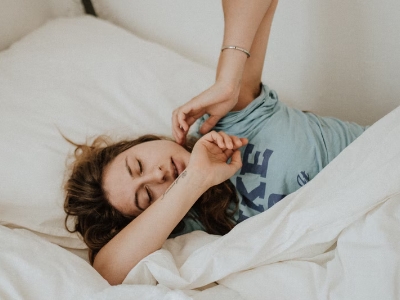Managing Anxiety-Related Insomnia

Anxiety and insomnia are not the same conditions, but people with insomnia could have anxiety. Insomnia is characterized by difficulty falling asleep, trouble staying asleep, and/or early waking. Anxiety and stress are closely linked, and they are among the chief causes of insomnia. Anxiety-related Insomnia may have several factors and treatment may vary depending on the condition.
What Are The Possible Of Causes Anxiety And Insomnia?
Anxiety is a normal part of life. The causes of anxiety disorders aren’t fully understood. Life experiences such as traumatic events seem to trigger anxiety in people who are already prone to anxiety. Inherited traits also can be a factor.
Insomnia is a sleep disorder that is marked by problems getting to sleep, staying asleep through the night, and sleeping as long as you would like into the morning. Common causes of insomnia include stress, an irregular sleep schedule, mental health disorders like anxiety, poor sleeping habits, depression, physical illnesses and pain, neurological problems, medications, and specific sleep disorders. For many people, a combination of these factors can initiate and aggravate insomnia.
The Link between Anxiety and Insomnia
Constant worry during the day often carries over into night which can cause mental hyperarousal. It can keep you from falling asleep.
Once you do get to sleep, anxiety also can prevent you from staying asleep long enough to feel fully rested. Anxiety has been compared to your body’s alarm system, it can help keep you safe and out of potentially dangerous situations. However, if that alarm goes off all the time and for no real reason, it can keep you from getting enough deep sleep. All of this can create stress over not being able to get to sleep or get enough sleep which can lead to even more anxiety.

How to Manage Anxiety-Related Insomnia?
- Try To Relax: If you’re lying awake at night with your heart pounding, it’s likely your fight or flight response has been triggered. Try to get your body back into a relaxed, resting state and take a deep breath.
- Get Up And Do Something: Sometimes, a useful way to lessen your anxiety is to physically focus on something completely different.
- Give Yourself Enough Time For Sleep: You must give yourself the chance to get this amount of sleep.
- Be Organized And Prepare For The Next Day: You can try making a to-do list so you know you’ve got everything covered before you go to bed. This can help to lessen your worries as you know everything is in hand for the next morning.
- Practice Good Sleep Hygiene: Try and keep a consistent sleep routine. You should also try to limit your intake of caffeine, sugar, and alcohol late at night.
Medications Can Be Used for Anxiety-Related Insomnia
It may take some trial and error to discover which treatments work best for you. For an appropriate prescription, it is best to consult your doctor.



